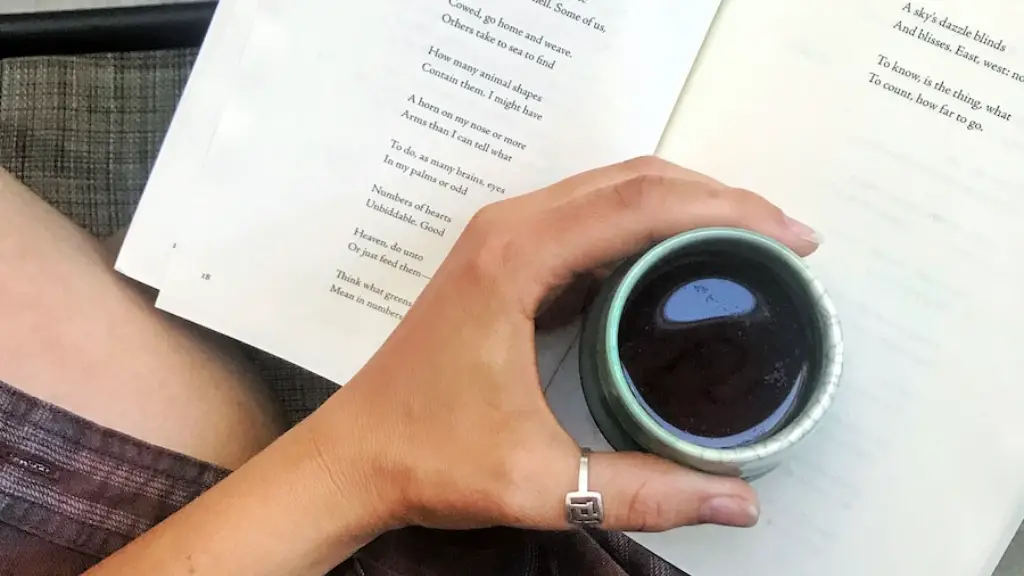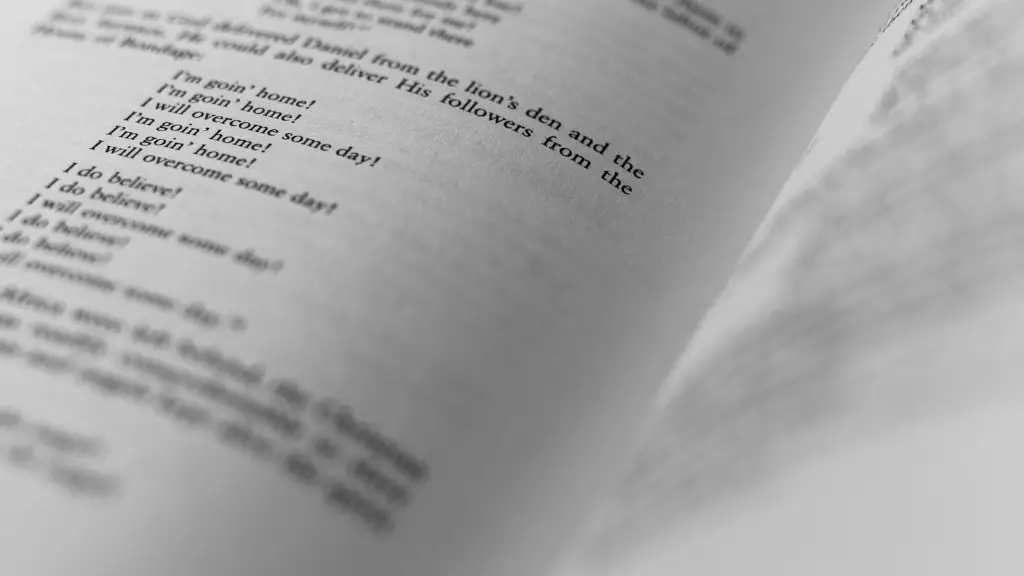What are the major types of poetry? Poetry has been around since the ancient times and while there is no single definition of poetry, it has definitely evolved over the years. Generally speaking, poetry is considered to be a form of literary work that uses language to evoke emotions and images, as well as to convey ideas and convey meaning.
Poetry can be divided into various types and styles, each of which has its own characteristics and purpose. The major types of poetry include: sonnets, odes, epics, ballads, eulogies and pastoral poetry. Each of these types of poetry has unique characteristics and can be used to express different sentiments.
Sonnets are one of the oldest and most popular types of poetry. They are composed in a specific format that consists of fourteen lines and a particular rhyme scheme. The most common type of sonnet is the Petrarchan sonnet, which consists of an octave (8 lines) and a sestet (6 lines). Sonnets are typically used to express love, loyalty and sorrow.
Odes are another type of poem which are written to express admiration and celebration. Odes usually consist of three stanzas, each of which has its own particular rhyme scheme and structure. Odes often depict nature and they can be composed in any form, ranging from stream-of-consciousness style to odes with a conventional structure.
Epics are a type of long narrative poem that tells the story of a hero or a grand event. An epic usually involves several characters in the plot and can cover many years or massive distances. The most famous epics are the Iliad and the Odyssey by Homer.
Ballads are a type of lyric poetry that tells a story in simple and direct language. Ballads are often composed in short, rhyming couplets that help create a compelling narrative. Ballads tend to be quite emotional, often expressing sadness, joy, and longing.
Eulogies are a type of poem that pays tribute to a deceased person or an event. Eulogies are typically composed in honour of royalty, heroes, and those who have made a significant impact in their lifetime. They often use formal language to express their deepest gratitude for the life of the departed.
Pastoral poetry is a type of poem that portrays the beauty of rural life and the harmony between nature and its inhabitants. Pastoral poetry is usually written in a pastoral form, which has been around since ancient times. It is characterised by its careful use of poetic devices such as similes, metaphors and personification to portray rural life.
In conclusion, while there are no strict boundaries between the major types of poetry, each of them has distinct characteristics and purposes. By understanding and exploring these types of poetry, readers can gain a deeper appreciation for the beauty of language and the range of human emotion.
Romantic Poetry
Romantic poetry is a literary genre that emerged in the 18th century and is still popular today. It is characterised by its intense emotionality and expression of profound yearning and love. Its primary purpose is to express deep personal emotions such as love, joy, sorrow and despair. Some of the most famous poets of the Romantic period include Lord Byron, Percy Bysshe Shelley, John Keats and William Wordsworth.
Romantic poetry incorporates a variety of elements such as imagery, symbolism, and figurative language in order to evoke strong emotions and vivid mental images. It often reflects a longing or desire for something impossible or unattainable, as well as a celebration of beauty in the natural world. Unlike other forms of poetry, romantic poetry does not rely on objective facts or criticisms but instead relies upon the poet’s imagination and subjective feelings.
Notable characteristics of romantic poetry include the use of elements of nature, nostalgia for the past, and the exploration of human emotions and relationships. Romantic poets often celebrate love and longing, pain and pleasure, and darkness and light. They often evoke feelings of joy and happiness as well as sorrow and despair in their readers.
Romantic poetry has had a profound impact on our culture and is still a popular form of writing today. It is an important part of our literary heritage and is one of the most influential genres of poetry.
Modern Poetry
Modern poetry is a broad term used to encompass a range of poetic styles that emerged in the 19th and 20th centuries. It is distinguished from other forms of poetry by its rejection of traditional poetic forms and rules and its emphasis on innovation. Modern poets instead sought to break away from conventions and explore new ways of expressing themselves and their ideas.
Modern poetry is heavily influenced by the ideas of the European avant-garde, with a particular focus on social, political and philosophical issues. Instead of conventional rhyme and meter, modern poets often experiment with new styles such as free verse, symbolism, and alliteration. Other characteristics of modern poetry include the use of allusions, images, and fragmentation to create new meanings, as well as the exploration of new and diverse themes.
Modern poets like T.S. Eliot, Ezra Pound, and W.B. Yeats have been hugely influential in shaping the landscape of modern poetry. Their works are still widely read today and have greatly impacted the world of poetry and literature.
Modern poetry is an incredibly diverse form of writing and continues to be an important form of literary expression. It provides a platform for poets to explore their individual perspectives, emotions and experiences in new and exciting ways.
Haiku
Haikus are a type of Japanese poetry that originated in the 17th century. Typically composed of three lines, a haiku is composed of 17 syllables arranged in a five-seven-five pattern. Haikus usually depict a moment in nature and evoke a certain emotion or feeling.
Haikus are usually written from the perspective of an observer and seek to capture the beauty of simple moments in life. They often portray a simple object or scene in detail and evoke a response from the reader. The most famous composer of haikus is the Japanese poet Matsuo Basho, who wrote some of the most famous haikus of all time.
Haikus are often seen as a form of Zen poetry as they seek to convey a moment of enlightenment or mindfulness. The short form of the haiku allows for a precise and concise expression of thoughts and feelings. The brevity of the form also encourages poets to focus on the essential aspects of a scene or event and to create vivid mental images.
In conclusion, haikus can be an effective way to communicate intense feeling and emotions. By combining precision and conciseness, haikus can be used to capture moments of beauty and enlightenment.
Prose Poetry
Prose poetry is a form of poetry that uses the conventions and techniques of prose writing such as description, dialogue, and narrative. It experiments with form and language in order to express poetic ideas or evoke a certain emotion or feeling. Prose poetry is a relatively new form of poetry that has only been around for about a century.
Some of the characteristics of prose poetry include mysterious imagery, ambiguous subject matter, unexpected linguistic twists and turns, and the synthesis of poetic and prose forms. Prose poetry is typically written in short paragraphs and relies heavily on imagery and symbolism. It often takes a lyrical form, but lacks the traditional boundaries of rhyme and Meter.
Notable poets of the modern prose poem include the American poet Susan Howe and the French poet Robert Desnos. These poets sought to break away from traditional narrative techniques and explore new and innovative ways of expressing themselves.
In conclusion, prose poetry is a relatively new form of poetry that has only been around for a few decades. Although it does not adhere to traditional poetic forms, it is a powerful tool for expressing emotions and conveying ideas. It is highly experimental and often allows poets to explore deeply personal and poignant issues.
Limerick Poetry
Limerick poetry is a type of humorous verse that is structured in five lines. The first, second and fifth lines typically have seven to ten syllables and rhyme with one another. The third and fourth lines have five to seven syllables and also rhyme with each other.
Limerick poetry often uses humorous and slapstick language to tell a story or joke. It is usually composed as a child’s nursery rhyme and is often used to make light of a situation or to poke fun at someone or something.
The most famous limericks were written by the British poet Edward Lear and first published in his book of poems, Book of Nonsense. He is credited with popularising the form, which is still popular today.
Limerick poetry has become a popular form of comedic writing and is often used to tell clean jokes or poke fun at someone or something. It is an effective way to convey a humorous message in a concise and entertaining way.
In conclusion, limerick poetry is an effective form of comedic writing that is characterized by its distinctive pattern of five lines. It is a popular form of writing that can be used to make light of a situation or to tell a funny story.
Confessional Poetry
Confessional poetry is a type of poetry that emerged in the 1950s and is characterized by its emotive language, vulnerability, and directness. It is a type of poetry that focuses on personal experiences, emotions, and confessions.
Confessional poets are usually seeking to express deep, personal feelings and experiences in an honest and direct manner. They tend to draw heavily upon their own experiences and often explore themes such as religion, mortality, and alienation. The emphasis is often on strong emotionality and vivid imagery.
Confessional poets such as Robert Lowell and Sylvia Plath have produced some of the most influential works of the 20th century. Their works are often intensely personal and raw and are characterised by intense emotionality.
In conclusion, confessional poetry is a type of poetry that is characterized by its honest and direct approach. It is often a highly personal form of expression and is used to explore complex emotions and experiences.

